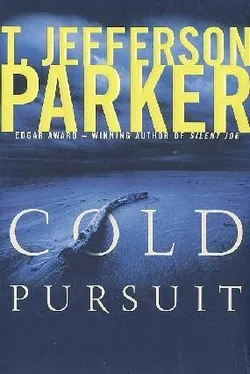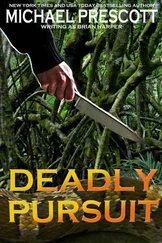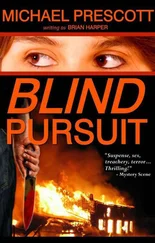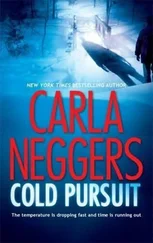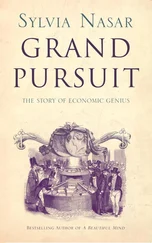And, in 1952, she'd been the place where McMichael's grandfather, Franklin, had been shot to death by Pete Braga after a dispute over money.
All of this had come to McMichael through Gabriel, who gathered information and gossip about Braga as if it was required by his religion. So what's Pete do with that worthless old tub of leaks he murdered Franklin on? He sells it to the city as a tourist destination and parks it out in Tuna Harbor. And does the city think people will pay to step aboard that stinking rat nest? Of course not. But Pete offered them options on some of his waterfront properties and they saw green- hotels and restaurants and tourist stuff. So what's the city council going to do- buy his rotten old ship for a few hundred grand or lose out on a shot to develop the harborside? Like Pete isn't a millionaire ten times over by now. Like he needs that kind of beer money. Like he's not selling Fords to the city all day every day and offerin' no bargains. Take my word for that.
McMichael called Patricia's name, got no answer, walked the port side past the freezer holds and the converted bait wells. He saw that his father had had it wrong about the Cabrillo Star - the hull was clean and true, the decks and bridges were bright white in the cool January sun, hardly a chip on the gunwales or rails, and even the old winches looked ready to handle a couple of hundred feet of nylon net, no problem.
"McMike!"
She came down off the radio bridge in jeans and tennis shoes and a red anorak with fur around the hood. Little oval sunglasses. Her dark curls bounced to her shoulders as she walked toward him and McMichael felt the familiar old tickle in his stomach.
She kissed his cheek and aimed him back toward the bridge. "I'm cleaning out Pete's things," she said. "The city owned this ship for twenty years and never got around to it."
"I thought the city still owned her."
"Pete bought it back when the tourists stayed away by the thousands. The galley's full of old junk."
"What are you going to do with her?"
Patricia started up the ladder. "We've agreed to sell it," she said, looking back down at him. "I got a restaurant guy up in Marina del Rey maybe interested. Three hundred grand he can have it. Sell the Ford dealership, too, though it's worth more."
McMichael waited until she was onto the bridge, then climbed up. "Split five ways?"
"You talked to Hank Grothke."
"Both of them."
Patricia shook her head. "The old man, last month they caught him stalking around the office early one morning, shredding papers. You name it- contracts, wills, magazines from the lobby, even some of those ass gaskets from the bathrooms. Made me think, you know, when I get that old just take me out and shoot me."
"Sure."
"I knew I could count on you."
"I kind of liked him."
"You're still capable of the unexpected."
She grinned at him. He'd never been able to tell if her half smile held joy or something more complicated. Unlike Stephanie, whose face was her heart.
"Never know what you'll find behind enemy lines," he said.
"Fun, wasn't it?" Patricia deployed her half smile again.
"Lots of that."
"Now we're older and duller," she said.
"Yeah," said McMichael. "Wheelchairs and shredders, right around the corner."
Her grin was gone. "What can I do for you, Tom?"
"I can't figure out who'd want to kill your grandfather. The nurse is clean. I don't think she set him up, either. I don't think she was involved at all. Nothing taken from his home, except those earrings you mentioned and maybe the hummingbird. And like you said, why would someone take those and leave the other two pounds of gold and diamonds? Tell me about him, Patricia. What was he doing on the Port Commission with the new airport? How was the car dealership going? And the Tunaboat Foundation- I know it has deep pockets and I hear there were some disagreements on the board. I'm throwing a wide net, but help me if you can."
"Enemies."
"And his state of mind, his clarity."
"Sharpen your little pencil, McMike. Come on down to the galley and we'll get some coffee."
The pot was already made. Patricia poured two mugs black and sat across from him in one of the booths. McMichael looked out the porthole to the south. He could see the navy shipyards and the Coronado Bridge and the cold blue sky. He tapped his pen against his notebook.
"First of all," she said, "Grandpa's state of mind was pretty good. He wasn't particularly forgetful or paranoid or having visions. He was a tough old man. He couldn't see all that well, and he kept driving- like I told you. I think he was a menace to society behind the wheel of a car. But this is the deal, Tom- my grandfather had enemies. He had business enemies, political enemies, personal enemies. You made a crack about dividing his estate by five. Well I don't know if Hank Grothke told you, but Grandpa has three living children and six living grandchildren. He disinherited four out of nine- that's pushing fifty percent."
"Tell me about the disinherited son."
"Carl is gay and Pete disowned him the second he came out of the closet. Carl had just graduated from high school. He's up in San Francisco now. I'll invite him to the funeral but he won't come. He also wouldn't sneak in and kill him. He's a decent and gentle man. One suspect down."
McMichael wrote and considered. "And his daughter?"
"That's my aunt, Liz DeCerra. She's sixty-one now, I think. Lives in Colorado. She's in the will. There, two suspects down."
"What about the grandchildren?"
"There are Cassie, Quentin and Max DeCerra. Pete wrote out Cassie because she ran off with a drug dealer, Quentin because Quentin punched him in the face, and Max because he broke into Pete's place and stole a bunch of cash and Anna's Lady Rolex."
"They sound like nice kids."
"Whatever, Tom. They were his grandchildren. Grandchildren have problems like anybody else."
McMichael wrote. "That leaves you and your brother and sister. Your side of the family stayed in favor."
"We lacked the physical courage of the DeCerras, that's for sure."
McMichael wasn't so sure. Things were about as physical as they could get, back when they were eighteen and seeing each other in secret, and Patricia had always gone straight for the forbidden settings: her parents' shower, her big sister's bed, her grandfather's deck, the living room, the patio chaise longue, the car. There was ample opportunity with her father at sea on one of Pete's boats and her mother a bookkeeper at the cannery. Then there was the beach at night, a picnic bench up on Palomar Mountain, the Regency Hotel by the hour, the sand dunes out toward Yuma, even a sweltering gas station bathroom on the way home.
He smiled and Patricia smiled, too, then she set her sunglasses on the table. Her eyes were dark and clear and McMichael instantly located the golden fleck in her right iris that he'd spotted for the first time when he was ten. And actually written a poem about when he was thirteen, with a rhythm and rhyme pattern based on Joyce Kilmer's "Trees." She'd given a photocopy of it back to him, covered with red lipstick prints and drenched in her perfume, but kept the original.
"What about Quentin or Max?" McMichael asked. "Do you think either of them might club the old man just for spite?"
"No. Those DeCerras are all hot-tempered, but they cool off fast."
McMichael looked up from his notepad. "Victor gets a nice piece of the estate."
She looked at him and shook her head. "And he's nothing but a ten-year-old in a sixty-three-year-old's body. Thanks to Gabe."
"That was never proven."
"He bragged about doing it. We Portuguese aren't exactly deaf, McMichael. And you Irish aren't exactly quiet."
"Is he ever violent?"
Читать дальше
